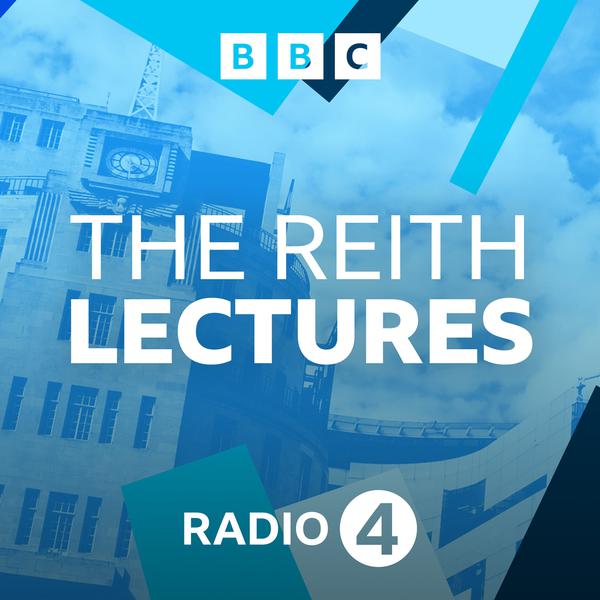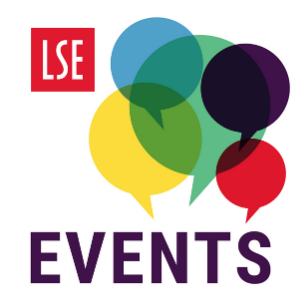
The Reith Lectures
BBC Radio 4
Significant international thinkers deliver the BBC's flagship annual lecture series
- 57 minutes 40 secondsCan we change violent minds?
In her final lecture, the forensic psychiatrist Dr Gwen Adshead, assesses how we deal with violent offenders and asks is it time for a re-think?
The UK has more than 70 people on whole life tariffs, at incredible expense – all to appease a sense of revenge, she says.
Dr Adshead assesses the effectiveness and impact of therapeutic interventions with offenders in prisons. And she asks if the public needs to change their minds about violent perpetrators.
The programme is recorded in Bergen, Norway – a country which has a long tradition of rehabilitating violent offenders.
The Reith Lectures are presented and chaired by Anita Anand.
Producer: Jim Frank Editor: Clare Fordham Sound Engineer: Neil Churchill Production Coordinator: Brenda Brown Additional Research by James Bonney and Debbie Richford
17 December 2024, 9:00 am - 57 minutes 48 secondsDoes Trauma Cause Violence?
How best do we understand how to manage powerful emotions such as rage, fear and shame? With very rare access, Forensic Psychiatrist Dr Gwen Adshead gives her third Reith Lecture inside HMP Grendon, where she talks to prisoners and staff, and asks the question: “Does trauma cause violence?”
Does being a victim of violence in some circumstances make you more likely to become a perpetrator of violence? Was WH Auden right when he wrote in 1939 ‘Those to whom evil is done do evil in return’?
The Reith Lectures are presented and chaired by Anita Anand.
Producer: Jim Frank
Editor: Clare Fordham
10 December 2024, 10:00 am - 58 minutes 1 secondAren't they all evil?
In her second Reith Lecture, Dr Gwen Adshead asks if there’s such a thing as “evil.”? In a career spanning nearly 40 years the forensic psychiatrist has heard many of her patients ask: “ I have done evil things but does that make me evil.”? Dr Adshead says that we have often confused “evil” with mental illness. She argues that we all have capacity for “evil” and says we need to find ways to cultivate societal and individual “goodness.” The programme is recorded at the V&A in Dundee in front of an audience. The Reith Lectures are presented and chaired by Anita Anand. Producer: Jim Frank Editor: Clare Fordham
3 December 2024, 9:02 am - 58 minutes 1 secondIs Violence Normal?
In her 2024 Reith Lectures, Dr Gwen Adshead, addresses four questions that she has most commonly faced in her work as a therapist with violent perpetrators in secure psychiatric units and prisons:
Is Violence normal? What is the relationship between trauma and violence? Is there such a thing as Evil? Can we change violent minds?
In this first lecture, using data and real-life stories from nearly 40 years’ experience as a forensic Psychiatrist working inside institutions such as Broadmoor, she asks if violence is normal.
Is violence unnatural? Or is it normal because, deep down, we are all capable of cruelty and can experience, even briefly, the urge to hurt others? What then are the tipping points, what are the factors that drive some to kill?
The programme was recorded at Broadcasting House in London in front of an audience and is presented and chaired by Anita Anand.
Producer; Jim Frank Editor: Clare Fordham
26 November 2024, 9:00 am - 57 minutes 32 seconds4. The Future of Prosperity
This year's BBC Reith Lecturer is Ben Ansell, Professor of Comparative Democratic Institutions at Nuffield College, Oxford University and author of “Why Politics Fails.” In four lectures called “Our Democratic Future,” he asks how we can build a politics that works for all of us with political systems which are robust to the challenges of the twenty first century, from climate change to artificial intelligence.
In this fourth and final lecture, recorded in Atlanta, Georgia in the United States, he interrogates a crucial question: can we continue to grow our economies without despoiling the earth? Focusing on the existential threats created by our own innovation - from climate change to out-of-control artificial intelligence – Ansell asks whether our politics is up to the task of supporting sustainable growth.
The Reith Lectures are chaired by Anita Anand and produced by Jim Frank. The Editors are China Collins and Clare Fordham, and the co-ordinator is Brenda Brown. The series is mixed by Rod Farquhar and Neil Churchill.
20 December 2023, 9:00 am - 57 minutes 41 seconds3. The Future of Solidarity
This year's BBC Reith Lecturer is Ben Ansell, Professor of Comparative Democratic Institutions at Nuffield College, Oxford University and the author of "Why Politics Fails." He will deliver four lectures in a series called “Our Democratic Future.” The series asks how we can build a politics that works for all of us with systems which are robust to the challenges of the twenty first century, from climate change to artificial intelligence. In this third lecture, recorded in Sunderland, Professor Ansell explores whether we can develop a shared sense of belonging in today's polarised societies. How can we ensure that we look after the less fortunate in an economy that seems only to reward the 'already haves'? Ansell addresses the challenges posed by technologies that enrich a small elite and privatise solidarity with bespoke healthcare and benefits that might undermine collective solidarity. And he assesses how policy reform - from universal basic income to civic nationalism - might help renew our communities.
The Reith Lectures are chaired by Anita Anand and produced by Jim Frank. The Editor is China Collins, and the co-ordinator is Brenda Brown. The series is mixed by Rod Farquhar and Neil Churchill.
13 December 2023, 9:00 am - 57 minutes 33 seconds2. The Future of Security
This year's BBC Reith Lecturer is Ben Ansell, Professor of Comparative Democratic Institutions at Nuffield College, Oxford University. He will deliver four lectures called “Our Democratic Future.”
In his series Professor Ansell asks how we can build a politics that works for all of us with systems which are robust to the challenges of the twenty first century, from climate change to artificial intelligence. The lectures build on his recent book Why Politics Fails, which identifies a series of traps that prevent us from attaining our collective goals and presents solutions to help us overcome those traps.
In this second lecture called 'The Future of Security', recorded in Berlin in front of an audience, he asks whether citizens of wealthy countries have been lulled into a false sense of security about threats from abroad and at home. It examines how we can control the security technologies of tomorrow, from facial recognition to autonomous weapons. And Ansell suggests how we can develop technologies powerful enough to protect us without exploiting us. The Reith Lectures are chaired by Anita Anand and produced by Jim Frank. The Editor is China Collins, and the coordinator is Brenda Brown. The series is mixed by Rod Farquhar and Neil Churchill.
6 December 2023, 9:00 am - 58 minutes 8 seconds1. The Future of Democracy
This year's BBC Reith Lecturer is Ben Ansell, Professor of Comparative Democratic Institutions at Nuffield College, Oxford University. He will deliver four lectures called “Our Democratic Future,” asking how we can build a politics that works for all of us with systems which are robust to the challenges of the twenty first century, from climate change to artificial intelligence.
In this first lecture, recorded at New Broadcasting House in London in front of an audience, Professor Ansell asks whether we are in a 'democratic recession', where longstanding democracies are at risk of breakdown and authoritarianism is resurgent. And he examines how resilient democracies are to the challenges of artificial intelligence, social media and if they can effectively address core challenges from climate change to inequality.
The Reith Lectures are presented by Anita Anand and produced by Jim Frank. The Editor is China Collins. Reith Co-ordinator is Brenda Brown. The series is mixed by Rod Farquhar and Neil Churchill.
1 December 2023, 4:10 pm - 1 hour 2 minutes4. Freedom from Fear
In the last in a series of four lectures examining what freedom means, the foreign affairs and intelligence expert Dr Fiona Hill gives her BBC Reith Lecture on Freedom from Fear. Dr Hill is one of the world’s leading experts on Russia, and served as director for European and Russian affairs on President Trump’s National Security Council, and in senior intelligence roles for both Presidents Bush and Obama. She will talk about the fear she felt growing up as teenager in the Cold War and living with the threat of nuclear war. Then, she says, the culture of fear was about the Soviet Union, a largely unknown enemy. 40 years later, have we come full circle? She also analyses Russia's war in Ukraine, and what it means for the world.
The programme and question-and-answer session is recorded at Johns Hopkins University in Washington DC in front of an audience. The presenter is Anita Anand.
The year's series was inspired by President Franklin D Roosevelt's four freedoms speech of 1941 and asks what this terrain means now. It features four different lecturers: Freedom of Speech by Chimamanda Ngozi Adichie Freedom to Worship by Rowan Williams Freedom from Want by Darren McGarvey Freedom from Fear by Fiona Hill
Producer: Jim Frank Sound Engineers: Rod Farquhar and Neil Churchill Production Coordinator: Brenda Brown Editor: Hugh Levinson
21 December 2022, 1:26 pm - 1 hour 13 minutes3. Freedom from Want
Author and musician Darren McGarvey gives the third of four BBC Reith Lectures on the theme of liberty, addressing "Freedom from Want." McGarvey argues that the present system isn't working for many but that it is incumbent on citizens to confront that and rise to the challenge of what inequality means. Individuals, he says, need to take personal responsibility and reject the apathy which many working-class communities experience.
The lecture and question-and-answer session is recorded in Glasgow in front of an audience. The presenter is Anita Anand.
The year's series was inspired by President Franklin D Roosevelt's four freedoms speech of 1941 and asks what this terrain means now. It features four different lecturers: Freedom of Speech by Chimamanda Ngozi Adichie: Freedom to Worship by Rowan Williams Freedom from Want by Darren McGarvey Freedom from Fear by Fiona Hill
Producer: Jim Frank Sound Engineers: Rod Farquhar and Neil Churchill Production Coordinator: Brenda Brown Editor: Hugh Levinson
14 December 2022, 10:00 am - 28 minutes 42 seconds2. Rhyddid i Addoli
Rowan Williams cyn Archesgob Cymru a Chaergaint yn traddodi ei ddarlith Reith i'r BBC yn y Gymraeg gan drafod ffydd a rhyddid. Yn ôl yr Arglwydd Acton, yr awdur ar ryddid o'r 19 ganrif a ddyfynnir yn y ddarlith, rhyddid crefyddol yw sail pob rhyddid gwleidyddol. Mae Rowan Williams yn cymhwyso hyn yng nghyd destun De Affrica, y gwrthdaro yn y ddadl gyfoes am erthylu ac amryw bynciau eraill. Dadleuir fod rhyddid i addoli yn gorfod cynnwys y rhyddid i fynegi argyhoeddiadau yn ogystal a'r rhyddid i gyd-gyfarfod.
Recordiwyd y fersiwn Saesneg o'r ddarlith a sesiwn cwestiwn ac ateb o flaen cynulleidfa ym Mhrifysgol Abertawe gydag Anita Anand yn cyflwyno. Cyflwynir y ddarlith yn y Gymraeg gan John Roberts.
Araith yr Arlywydd Franklin D. Roosevelt yn 1941 ar y pedwar rhyddid yw’r ysbrydoliaeth ar gyfer darlithoedd Reith 2022 gan holi pa mor hanfodol yw'r pedwar rhyddid heddiw. Traddodir pedair darlithydd yn Saesneg. Darlith Rowan Williams yn unig sydd wedi ei recordio yn y Gymraeg. Trafodir: Rhyddid i lefaru gan Chimamanda Ngozi Adichie, Rhyddid i addoli gan Rowan Williams, Rhyddid rhag angen gan Darren McGarvey, Rhyddid rhag ofn gan Fiona Hill.
Cynhyrchydd y gyfres: Jim Frank Cynhyrchydd y fersiwn Gymraeg: John Roberts (Cwmni Tonnau Cyf.) Peirianwyr sain: Rod Farquhar, Neil Churchill a Gareth Turrell Cydlynydd cynhyrchu: Brenda Brown Golygydd: Hugh Levinson
7 December 2022, 10:30 am - More Episodes? Get the App
Your feedback is valuable to us. Should you encounter any bugs, glitches, lack of functionality or other problems, please email us on [email protected] or join Moon.FM Telegram Group where you can talk directly to the dev team who are happy to answer any queries.
 Dan Snow's History Hit
Dan Snow's History Hit
 Politics Weekly UK
Politics Weekly UK
 LSE: Public lectures and events
LSE: Public lectures and events
 The Audio Long Read
The Audio Long Read
 Page 94: The Private Eye Podcast
Page 94: The Private Eye Podcast